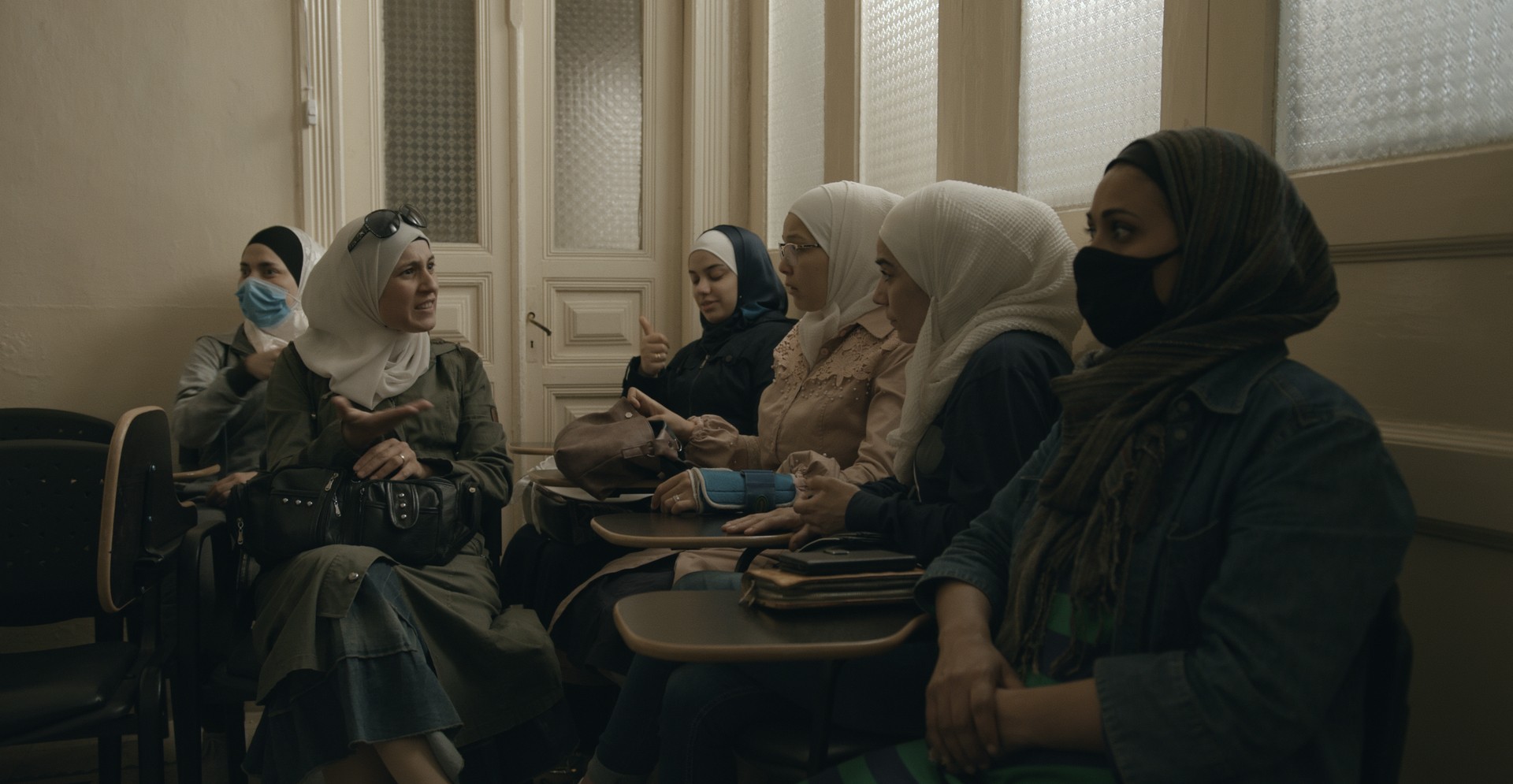Purchasing and shooting on celluloid film, especially in this age of closing processing labs, is expensive for large and smaller productions alike: the documentary movement got its first legs in the ‘60s as its practitioners worked with the more economical 16mm film gauge, and a second burst of momentum in the early ‘00s with the advent of digital video. And their byword is quantity: the camera needs to roll and roll, so nary anything vital in the “actuality” shooting process is missed.
Under the Sky of Damascus is yet another testimony to what the camera can pick up, and the bevy of uncontrollable variables put into motion by any documentary project, especially if the filmmakers seem to be on the lookout for quite something else. This Berlinale-premiering work, by Syrian co-directors Talal Derki (following up Of Fathers and Sons, Oscar-nominated in 2019), Heba Khaled (the main deviser and narrator of the project), and film critic Ali Wajeeh, has a fractal dimension, its subject and conclusions replicating itself at every angle from intent to outcome, raising and addressing the ethical questions whenever reality is intervened in by a project of this nature. And there’s an important regional connection to recent Iranian politics and filmmaking as well, with the film’s focus on women’s civil liberties chiming with the recent Mahsa Amini protests against the country’s morality police, and through the necessity of “remote” directing, as the exiled Khaled and Derki must WhatsApp in from foreign exile, guiding the on-the-ground filmmaking team compered by Wajeeh.
Reminding of the misalignment between the women’s movements of the Anglophone and Middle Eastern world, many viewers could feel that the project’s initial thrust––of documenting the creation of a theatre play based on disclosures of sexism and harassment––won’t surprise or scandalize anyone; the film’s audience will unlikely know any better, but it’s worth questioning the specificity of what the protagonists––a group of five female actresses, just out of drama school––are researching and compiling. Despite a telling vignette on how a glamorous TV soap actress’s refusal to sleep with a high-ranking military official led to her framing on drug charges, they comb numerous female-exclusive spaces––a cloth factory, a segregated prison––and are met with sobering tales of eerily uniform circumstances: wanton domestic and sexual violence, and the male benefit of the doubt for all attempts at justice.
There are occasional details of the backgrounds and current situations of the main participants, especially one named Farah, who comes from a strictly observant Muslim background, but whose family show well-meaning caution about what could befall her as an empowered young woman in this society. The direction and storytelling moves swiftly through the aforementioned locales, taking up the first two acts of its maybe-too-lean runtime, and the risk of nuances not being fully conveyed to the audience is real, although this masks what the directing team eventually reveal, aware and most definitely nursing guilt about revelations the whole project will bring to the surface.
The context of the country emerging out of the civil war is most definitely stressed, but absent of any political recrimination for the incumbent Assad regime; the more novel focus from Khaled, explained in her articulate voiceovers, are on shifts in attitudes and awareness that could potentially find mass support, with civil society in such a fragile state. At the great risk of manipulating and endangering their trusted focal characters, they have created an unstable near-laboratory setting for their documentary, and the combustible results form shards of piercing insight.
Under the Sky of Damascus premiered at Berlinale 2023.

